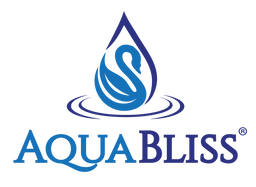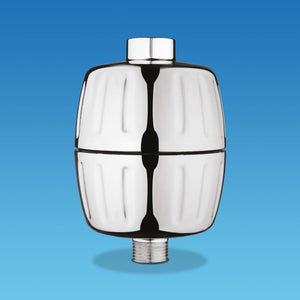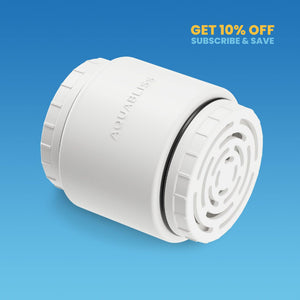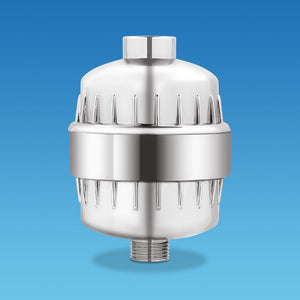Acne can look worse after a shower. Learning about the causes can help people avoid making their blemishes stand out. Increased blood flow or skin irritation are the most common reasons.
It happens when exfoliating or hard water makes the skin redder, drawing more attention to a person’s acne. There are many more reasons why acne worsens after someone showers, such as chemicals from the shower water depleting the skin’s natural moisture. So, make sure to keep reading.
Can Showering Cause Skin Acne?
Does your acne stand out more when you come out of the shower? You’re not alone; many people wonder about this strange phenomenon. It doesn’t make sense because showering is part of our daily hygiene routines— it’s good to shower.
Something that we do to get clean shouldn’t cause skin flare-ups. Showering isn’t the only cause of acne; a person can get it for many different reasons. However, their water type and facewash products can inflame the skin, making it more apparent. If someone’s ruled out the other common causes of acne, like hormone changes and sweating frequently, their showering habits could be the culprit.
It’s essential to consider all the possible causes to stop breakouts. So, showering can lead to acne, although it doesn’t cause it directly, specifically if someone’s not using the correct water or skincare products. Anyone can install a high-quality water filtration system to help with these skin issues.
Can Showering Too Much Cause Acne?

If a person’s wondering, “Why does my acne look worse after a shower?” they could be showering too much. The hot water and chemical exposure can exacerbate the breakouts.
Frequent showering can strip the skin of essential oils. When that happens, the skin becomes dry and over-produces more natural oil to compensate. A hot shower is worse for acne because they extract more oil from the skin. The longer the hot shower, the more moisture it removes.
Shower water also contains various chemicals, like chlorine and chloramine. These chemicals also dry the skin and cause it to produce more oil, clogging the pores. Most hard water also contains heavy metals, like nickel and mercury. These additives mix with oils and thicken it, clogging the skin’s pores.
So, does showering too much cause acne? It can. The more a person showers, the more they strip their skin of its natural oil barrier and dry it out. Some facewashes can be a harsh cleanser, making them do more harm than good to the skin’s surface. Most people only need to shower once a day to stay clean and prevent acne problems from popping up.
Should You Wash Your Face in the Shower?
Most people cleanse their faces in the shower. It can help save time, and it’s easy since you’re already washing the rest of your body. So, if you’re wondering, “Can shower water cause acne?” wouldn’t water from the bathroom sink be better?
Washing your face from the sink can be better because the skin is exposed to less hot water and chemical-filled water for a shorter time than washing your face while taking a long shower. Quickly washing your face in the sink is also more bearable than taking cold showers for many people.
It shouldn’t make your acne worse and protects the skin’s natural oils. You don’t need to completely give up on washing your face in the shower. It can be fine if you use lukewarm water, have a quality water filter, and don’t over-exfoliate your skin to avoid post-shower acne breakouts.
What Causes Acne to Break Out After Showering?
There are a few common reasons acne breakouts are worse post-shower. Not using a suitable water temperature, showering too much, and not rinsing hair care products well are some likely causes. However, there’s more to it than that! Keep in mind that multiple of these factors could be in play.
Too Hot or Too Cold

So, are cold or hot showers better for acne? A temperature in between is best. The shower’s temperature can cause acne problems when it’s at one of the extremes:
- Can hot water cause acne?: Hot water can lead to acne by drying out the skin too much, causing it to over-produce natural oils that clog pores.
- Can cold water cause acne?: Cold showers can also cause skin to break out because they don’t remove dirt from clogged pores and leave too much of the skin’s natural oils behind.
Using lukewarm water can cleanse the skin gently and without being too drying, making it the best choice for protecting your skin’s natural moisture. It’s also not as uncomfortable as cold water is.
Showering Too Frequently
As mentioned above, showering too much can lead to skin issues. Your shower habits can worsen existing acne. Fast-moving water is rough on the skin, heat can dry it, and exfoliation can even become a problem.
Plus, harsh soaps can cause pimples through excess sebum production. Let your skin dry naturally when you get out of the shower. Rubbing your face with a dirty towel is an easy way to worsen acne problems.
One shower a day is good enough for most people. You only need to shower more than once a day if you’re an athlete to help deal with sweat. Some people don’t even need to shower once a day. So, it’s okay to choose a routine that works for you, even if that means showering less often.
Shampoo, Conditioner, and/or Body Soap Clogging Your Pores
Some Hair Care products contain oils and chemicals that can also clog pores. When someone’s hair touches their face and neck a lot, it can also cause acne because of the products it’s holding on to.
So, not rinsing well enough in the shower leaves an oily residue that causes acne. Luckily, it’s an easy problem to fix. Start by washing from the tip of your head and work to the bottom of your feet. You should work from the top down each time you take a shower.
That means starting with hair care products, rinsing them out, then washing your face. From there, work on cleaning your body moving downward. Cleaning in this order removes any lingering shampoo and conditioner residue from the face, so it doesn’t sit there and cause acne issues. If acne persists, consider using targeted acne treatments to address specific breakouts.
It’s easy to tell if hair care products are at the root of a blemish problem. Acne along the hairline and back of the neck appears when that’s what’s happening.
Over-Exfoliation

Over-scrubbing the skin is more common in the shower. It irritates the skin, strips oils, and makes it look red and inflamed. It also can leave behind dead skin cells when not rinsed well enough, leading to clogged pores.
Over-exfoliation usually happens when someone has higher water pressure—the pressure roughly blasts away at the skin. It can become a problem when they add more exfoliating products into the mix.
Many people prefer to clean their faces in the sink to avoid over-exfoliating. However, you can still clean your face in the shower without worry as long as you’re gentle.
Bathing in Hard Water
Hard water has more minerals than soft water, which can clog pores over time. Minerals can also linger on the skin and trap acne-causing bacteria against it. Calcium and magnesium are common minerals in tap water, but they’re also the most likely to cause acne because they make natural oils waxy and more solid.
The hardened oil can become trapped in the skin. Lastly, hard water can make skin feel itchy. So, people are more likely to scratch and rub their faces, leading to acne.
Other Water Contaminants/Chemicals like Chlorine and Chloramine
Contaminants and chemicals in water can cause extreme drying, leading to severe breakouts. The more chlorine exposure, the worse the acne becomes. Combining these chemicals with powerful acne-fighting ingredients in many facewashes can dry the skin out even more.
Let’s cover this topic in more detail because it’s one of the most common reasons a shower would make someone’s skin break out.
Dangers of Chlorine and Chloramine in Your Shower Water Triggering Acne Problems
Everyone’s shower water has either chlorine and/or chloramine because cities use these chemicals as disinfectants. They make the water safe to drink and wash with. However, chlorine and chloramine can be horrible for triggering skin problems. Here’s why:
- They dry skin: These chemicals are powerful oxidizing agents, so they remove natural oils.
- They combine with debris in the skin: These chemicals can mix with dead skin, dirt, and sweat left behind on the face. When that happens, the debris thickens and can clog pores.
- They destroy natural skin microbiomes: These chemicals can kill beneficial bacteria that help keep acne at bay.
- Sensitivities and allergies: Some people might be sensitive to these chemicals. Their skin gets more irritated by them, leading to red skin that’s hard not to scratch.
- They disrupt the skin barrier: Harsh chemicals wear down the outermost layer of skin, making it more prone to flare-ups.
While chlorine and chloramine are the most significant acne-causing chemicals in shower water, there are more. Skin and hair dryness are the most common effects they have on people.
Shower head water filters are excellent ways to reduce chlorine and chloramine before they cause breakouts. Those who live in areas that put a lot of additives in the tap water should consider getting a shower filter.
Can Hot Water Shower Cause Acne?

Hot water showers can make acne flare up in several ways. As mentioned above, hot showers are very drying to the skin. However, there’s more to it than simply drying the skin. So, do hot showers cause acne? The answer is yes, they can.
Hot water and warm showers can also remove the skin’s protective barrier, leaving it open to bacteria, dirt, and other irritants that cause acne. Hot water also makes blood vessels expand. When that happens, the skin becomes redder, making acne that’s already there more visible, so it looks like it got worse.
Since the blood vessels are more active after a hot shower, the skin becomes sensitive. It might react harshly to moisturizers and serums. Finally, heat makes pores open and easier to clog. People taking hot showers should rinse with cooler water to help close their pores and prevent acne.
Can Cold Water Cause Acne Problems?
So, if hot water isn’t the solution to dealing with pimples, you’re probably wondering, “does taking cold showers help with acne?” Unfortunately, cold water isn’t the answer either since it can also lead to acne.
A cold shower isn’t as effective at cleaning the skin, so dirt and oil get left behind. The debris clogs pores and makes flare-ups more likely. Being in cold water isn’t great for our immune systems, either.
While cold showers may offer temporary relief to inflamed skin, they might not be the best long-term solution for acne. In fact, cold water can have some drawbacks for skin health. For instance, it may make the skin less efficient at fighting off acne-causing bacteria and can lead to flakey, chapped skin.
This irritation and flaking can potentially exacerbate acne by trapping skin debris in pores. Thus, it's essential to consider the potential downsides alongside the perceived benefits of cold showers for acne treatment. If you're considering cold showers for skincare, it's wise to weigh the cold shower benefits against potential drawbacks and consult with a dermatologist for personalized advice.
What’s the Perfect Water Temperature for Acne?
Instead of a steamy or freezing shower, a lukewarm one is best. It’s not too hot or cold, so it doesn’t irritate or destroy the skin’s natural barrier. Lukewarm water also doesn’t dry out the skin too much.
It balances the skin’s sebum production, preventing oily, clogged skin. So, take a Goldilocks approach to choosing your shower temperature! That means people asking, “Are cold or hot showers better for acne?” should choose a temperature in between.
AquaBliss Shower Filters for Acne Prone Skin
AquaBliss Revitalizing Shower Filter (SF100) adds vitamins and minerals, reduces levels of chlorine and pesticides, and controls lime scale buildup, dirt, and bad odors. AquaBliss filters contain KDF-55, which has been shown to reduce heavy metals.
Because the SF100 model contains vitamin C, it can reduce low levels of chloramine in a short period of time. Are you ready for revitalized skin, hair, and nails? AquaBliss HD Revitalizing Shower Filter (SF400) is the Heavy Duty Version of the SF100 Model.
The HD SF400 Model will reduce even more harsh chemicals, add more vitamins and minerals, reduce lower levels of chlorine and pesticides, and control lime scale buildup (white spots on your glass shower walls), dirt, and various bad odors.
The HD SF400 also has external sediment pads, which are great for handling heavy sediment issues since you can rinse/replace the sediment pads to keep the water flowing freely. By reducing chlorine, chloramine (chlorine+ammonia) in your shower water, you will reduce the risk of further skin inflammation and acne flare-ups.
AquaBliss customers also report significant positive results when using the AquaBliss Revitalizing Shower Filter (SF100) for other skin issues like eczema and dermatitis.
If you are unsure about which shower filter model is best suited for your specific issues, please contact customer care directly, and they will review your water quality report and make a suggestion about the best shower filter for your specific concerns. link support@aquabliss.com and explore Amazon.
Choose a Quality Water Filter to Help With Acne
In short, acne can look worse after a shower. The skin can become irritated and red, making blemishes more apparent at a distance. Hot water and chlorine can lead to dry skin and overproduction of natural oils.
Plus, over-exfoliation and the minerals in hard water can cause clogged pores. Consider a high-quality water shower filter if you struggle with acne flare-ups after a shower. You’ll notice a difference right away. Contact our team at AquaBliss to help get you on track to smooth acne-free skin!








